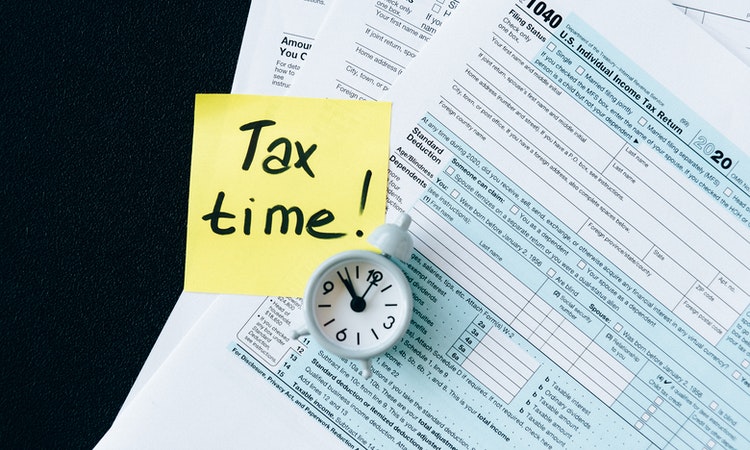- 1.1 Expertise in Tax Laws and Regulations:
- 1.2 Strategic Tax Planning:
- 1.3 Personalized Advice and Guidance:
- 1.4 Tax Compliance and Reporting:
- 1.5 Representation and Advocacy:
- 1.6 Continual Monitoring and Adaptation:
- 1.7 Maximizing Tax Efficiency:
- 1.8 Tax Advisor Duties
- 1.9 Hiring a Tax Advisor
- 1.10 Benefits of Tax Advisory Services
The new year is almost here, and a whole tide of new beginnings comes with it. However, at least one lingering element that will keep hanging over you from the previous year: your taxes.
Americans have a lot of mixed feelings about the tax season, but there’s no doubt that sitting down and hammering out all the paperwork for your taxes can be a lot of work.
That’s why you might want to consider hiring the help of a tax advisor. If you haven’t been convinced why a tax consultant can be so helpful, all you’ll likely need to hear is the many benefits. Read on, and we’ll walk you through what you’ll miss out on.
What Can a Tax Advisor Do for You?
Expertise in Tax Laws and Regulations:
Tax laws are dynamic and multifaceted, posing challenges for individuals and businesses in compliance and optimization. A tax advisor possesses a deep understanding of these laws and stays abreast of the latest developments and amendments. Their expertise enables them to interpret complex tax codes, identify opportunities, and mitigate risks, ensuring compliance while maximizing tax efficiency.
Strategic Tax Planning:
Tax planning is not merely a year-end ritual but a continuous process to minimise tax liabilities and optimise financial outcomes. A tax advisor collaborates with clients to develop comprehensive tax strategies tailored to their unique circumstances and objectives. They devise proactive strategies to reduce tax burdens, preserve wealth, and achieve long-term financial objectives by analysing income, expenses, investments, and future goals.
Personalized Advice and Guidance:
Every individual or business has distinct financial goals, challenges, and priorities. A tax advisor provides personalized advice and guidance, taking into account their client’s specific needs and circumstances. Whether it’s retirement planning, estate planning, business succession, or investment decisions, they offer tailored solutions that align with the client’s objectives while optimizing tax efficiency.
Tax Compliance and Reporting:
Tax compliance is a critical aspect of financial management, encompassing various obligations such as filing tax returns, maintaining records, and adhering to regulatory requirements. A tax advisor ensures meticulous compliance with tax laws, helping clients navigate tax reporting complexities with accuracy and integrity. By staying proactive and organized, they help mitigate the risk of penalties, audits, and legal disputes, fostering peace of mind for their clients.
Representation and Advocacy:
Having a knowledgeable advocate by your side can make a significant difference in tax audits, disputes, or controversies with tax authorities. Tax advisors advocate for their clients, representing them during audits, negotiations, and appeals. With their expertise in tax laws and regulations, they defend their client’s interests, strive for fair resolutions, and mitigate potential liabilities, alleviating the burden and stress associated with tax-related conflicts.
Continual Monitoring and Adaptation:
Tax laws and regulations are constantly changing due to legislative reforms, court rulings, and economic developments. A proactive tax advisor continually monitors these changes, assessing their implications for clients’ financial situations and adjusting strategies accordingly. By staying informed and adaptable, they help clients navigate evolving tax landscapes, seize opportunities, and mitigate risks effectively.
Maximizing Tax Efficiency:
One of the primary objectives of tax advisory services is to maximize tax efficiency without compromising compliance. Tax advisors employ various strategies and techniques to achieve this goal, such as tax deferral, credits and deductions optimization, entity structuring, and investment planning. By leveraging these strategies judiciously, they help clients minimize tax burdens, retain more of their hard-earned income, and enhance overall financial well-being.
Tax Advisor Duties
So, what does a tax advisor do, anyway? A professional tax consultant specializes in tax law. Because of this deep and up-to-date knowledge of financial matters, they are in a perfect position to help others work through their often-complicated tax matters.
It’s a lot of work keeping current on state and federal tax laws. But these professionals do it, and they can save you a lot of time and heartache.
A tax consultant can help to prepare your tax return, suggest various deductions, and work to limit your overall tax liability. If you’ve found yourself in any one-of-man-specific tax situation, a professional can help you determine how best to handle it.
That might include managing tax responsibilities related to rental properties, managing capital gains taxes, or determining the tax impact of various major life changes.
Businesses have to pay taxes just like people do, and if you run your own business, it’s all the more reason to have a tax assistant at your side. Paying business taxes can be complicated, and it can be challenging to determine what to keep separate from your taxes.
A professional could step in and sort everything out for you, which would be a huge help during a stressful time.
Hiring a Tax Advisor
If you’ve been convinced you need additional tax help, you might need more information to push you over the edge.
For example, how much should you budget if you’re planning on bringing on a tax advisor? A tax advisor’s fees can vary wildly from professional to professional. Location plays a role, as does the overall complexity of your tax situation.
The less money you make yourself, the cheaper you’ll likely be able to retain someone’s services.
Benefits of Tax Advisory Services
Tax time has its ups and downs, but it can make a big difference if you can manage to bring on some extra help. The above reasons for hiring a tax advisor can help convince you why making this hire can be a big help.
Need more financial advice? Keep scrolling our blog for more.
